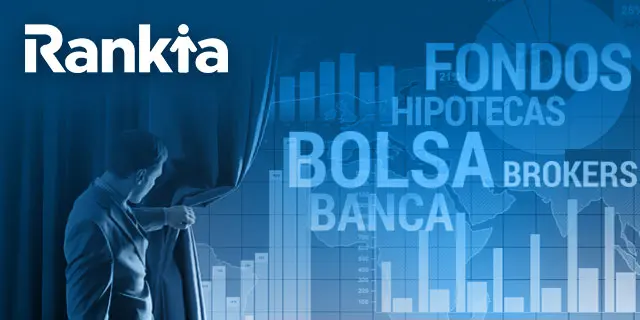Asia parece ir hacia una integración, mientras que Europa lucha desesperadamente para detener su caída, aunque tal vez no para recobrarse, mientras EUA desplaza a Grecia en la mente de los inversores desvelados.
Ya en años recientes los países latinoamericanos discutían el tema de la "inclusión económica" que no es otra cosa que empleo para las personas, tras haber sufrido larga crisis y miseria a partir de los años 1980. El empleo es la manera en que el capitalismo reparte la riqueza y permite a la gente ser miembro del capitalismo. Ahora le toca el turno a Asia. Parece que Vladivostok se convertirá en un eje central de la política rusa para con Asia, y se tratará el tema de la integración económica, el comercio y el combate del hambre.
We have made food security a particular priority for discussion at the summit, a proposal that the other participants supported. Instability in global food markets can lead to serious economic and social risks. We must jointly offer answers to this challenge. - Putin: Asia-Pacific key for Russia’s future development
Realmente aunque Rusia ocupa un lugar en los BRICS, tiene buenas razones para preocuparse por el hambre de sus habitantes, porque el crecimiento no ha llegado a sus habitantes, el capitalismo no les ha llegado todavía.
Over a million Russians get a monthly wage of $148, most of them from the public sector, well below the $220 poverty line. 650,000 Russians out of 1.3 million living on the minimum wage work in the public sector, according to the country's Public Health and Social Development Ministry. The minimum wage is the lowest monthly wage employers may legally pay workers. It will be increased next year by 13% to 170 dollars a month, less than the minimum cost of living. According to the Russian statistics agency Rosstat 12.5% of Russians live below the poverty line. The minimum wage in Russia is much lower than in developed countries, the auditor FBK reports. According to its rating, Luxembourg, Netherlands and Belgium top the list with a minimum wage of over $1500 a month. Last in line is Kyrgyzstan where minimum wage is the equivalent of $24 a month. "In Russia, the minimum wage does not guarantee a decent standard of living for low-paid workers," Anna Bolsheva from the Global Labour University told Expert magazine. - 1.3 million Russians on minimum wage, far below poverty line
Tras casi quedarse sin dinero, se esperaría que Japón entre en la quita recesión en 15 años, y ahora el gobierno japonés está inyectando dinero para evitar eso.
The money released from reserve fund will be used to create jobs, support small businesses and rebuild areas hit during the March 2011 tsunami. The measure is expected to add 0.2% to Japan's GDP and to create about 80,000 jobs, the Cabinet said. It is the second round of stimulus measures in less than two months as the government released a smaller package of 422.6 billion yen ($5.1 billion) in October. The Japanese government rushed to pour cash in the country’s flagging economy as it is threatened of another technical recession, its fifth in 15 years. It is expecting a fall in October-December GDP, after dropping by 0.9% in Q3, which was below analysts’ expectations. The contraction is equivalent to a 3.5% drop in GDP per year. Earlier this month the Bank of Japan said it had no plans for support measures, but seems weaker figures forced the authorities to change their minds. - Japan releases $10.7bn to support the economy
Ya en Europa se han dado cuenta (finalmente) de que los jóvenes en toda Europa sufren un altísimo desempleo. Bienvenidos a la Europa tercermundista. ¿Recuerdan que desde que se creó este blog he hablado de la política del G20 de hacer absolutamente nada acerca de la crisis? bueno, aquí está el resultado, una sorpresiva noticia completamente esperable. ¿Será que pensaban que haciendo nada el problema desaparecería sólo? Europa está expulsando su futuro, los jóvenes, del régimen del capitalismo.
Those under-25s out of work in the eurozone is up from 21.2% year-on-year, The Guardian reports. There are now 3.6 million Europeans under the age of 25 out of work in the region. These figures vary starkly between northern and southern European countries as Spain saw 56% of its young people out of work, while in Germany only 8.1% of the young are unemployed. Austria and the Netherlands also saw a lower youth unemployment rate of 8.5% and 9.8% respectively. For comparison, Greece reported 57% young people out of work in the third quarter of the year. - Youth unemployment hits record 23.9% in eurozone
En sus tímidos esfuerzos para detener la caída, Europa ya parece ponerse las baterías un poco, y aparentemente iría a imponer reglas a las agencias calificadoras que esencialmente han saboteado la economía europea. ¿Quién califica a las calificadoras? Si la iniciativa prospeta, la UE lo haría. Claro, una cosa es decirlo y otra que lo hagan. En mi caso, hasta que vea al payaso, soltaré la risa. Esto evita males, pero no empuja la inclusión económica.
Under the new rules the agencies must pick three days a year when they will rate countries, publishing ratings only after close of business and at least one hour before the opening of trading pm European floors. Besides that, the agencies may issue ratings that haven’t been requested by a client outside those dates, only if they can justify it to regulators. All ratings will be published on a European platform. “Credit rating agencies will have to be more transparent when rating sovereign states, respect timing rules on sovereign ratings and justify the timing of publication of unsolicited ratings of sovereign debt,” Michel Barnier, the European commissioner in charge of regulation said in a statement. “They will have to follow stricter rules which will make them more accountable for mistakes in case of negligence or intent.” - EU imposes control on rating firms to limit downgrades
Por otro lado, los prestamistas hacen el ridículo al señalar que harán una quita cuando Grecia empiece a ir por la vía del superávit. Es que con medidas recesivas no se logra superávit, sino aumento de deuda. Vaya que resulta interesante que para España ya apuntaban que en 2016 empezaría a recuperarse, y ahora resulta que Grecia también. Como que el saqueo de los bancos a España y Grecia va a continuar por 4 años más. En su artículo Anatomy of a crisis, George Soros apuntó cómo fue que funcionó el mismo saqueo bancario a Latinoamérica en los años 1980. Parece que igual funcionará para España y Grecia.
"When Greece has achieved, or is about to achieve, a primary surplus and fulfilled all of its conditions, we will, if need be, consider further measures for the reduction of the total debt,” he told journalists after the eurozone finance ministers meeting that ended early on Tuesday. - European creditors ready to 'consider reduction of Greece’s debt' by 2016
Antes el mundo de las noticias parecía girar alrededor de Grecia, pero ahora el "Fiscal cliff" ha ocupado ese lugar. El ranking de los mejores y peores estados en materia de administración puede verse en The Best- and Worst-Run States in America. Obama tiene hasta el año nuevo para establecer medidas.
A high-ranking member of the US Senate unnerved investors expressed frustration over the budget impasse and the looming “fiscal cliff.” This sent Asian stocks lower in early Wednesday trading. The US President Barack Obama, together with lawmakers, has until January 1 to reach a deal to trim the country's unwieldy deficit. Otherwise, a series of automatic tax increases and sharp spending cuts will take effect that could drag the world's leading economy into recession. - Market Buzz: ‘Fiscal cliff’ concerns offset Greek optimism
EUA e Israel sufrieron el 29 de noviembre una derrota diplomática, al reconocerse a Palestina (ONU reconoce a Palestina como Estado observador ‘no miembro’). Si son inteligentes, los palestinos aprovecharán su posición para ir tras objetivos políticos, y no usando violencia (Voto de ONU a favor de Palestina alienta reconciliación entra Autoridad Palestina y Hamás). ¿Se ha acabado el "soft power" del que otrora gozaban EUA e Israel? Las razones humanitarias que en el pasado dieron lugar al estado de Israel, son las mismas que hoy parecen dar lugar al reconocimiento de Palestina. En una entrevista, el presidente Jimmy Carter apuntaba la existencia de apartheid hacia los palestinos en Israel.
Q: Your use of the term "apartheid" has been a lightning rod in the response to your book. Could you explain your choice? Were you surprised by the reaction?
A: The book is about Palestine, the occupied territories, and not about Israel. Forced segregation in the West Bank and terrible oppression of the Palestinians create a situation accurately described by the word. I made it plain in the text that this abuse is not based on racism, but on the desire of a minority of Israelis to confiscate and colonize Palestinian land. This violates the basic humanitarian premises on which the nation of Israel was founded. My surprise is that most critics of the book have ignored the facts about Palestinian persecution and its proposals for future peace and resorted to personal attacks on the author. No one could visit the occupied territories and deny that the book is accurate. - Palestine: Peace Not Apartheid
Mientras tanto, la misma OECD que en el pasado hablaba de la baja productividad de los españoles, sugiriendo en su estudio que las empresas españolas no vendían porque los españoles eran vagos y no porque los clientes no compran (La demagogia de los salarios competitivos españoles), ahora viene a decir que seguirá habiendo recesión, y recomiendan unir a los bancos. Pero es que la desregulación y excesos de los bancos fueron y siguen siendo la causa del problema.
“Over the recent past, signs of emergence from the crisis have more than once given way to a renewed slowdown or even a double-dip recession in some countries,” said Pier Carlo Padoan, OECD chief economist. “The risk of a major contraction cannot be ruled out.” The eurozone economy is “projected to remain in or near recession until well into 2013,” the report said, warning that the currency bloc “could be in danger” if the region’s policy makers fail to advance with reforms. “A complete bank union is needed for the long term; direct ESM injections into banks are necessary in the short term,” it said. - OEСD slashes global forecast, warns of global slowdown
Por favor paren el mundo, que aquí me bajo.



